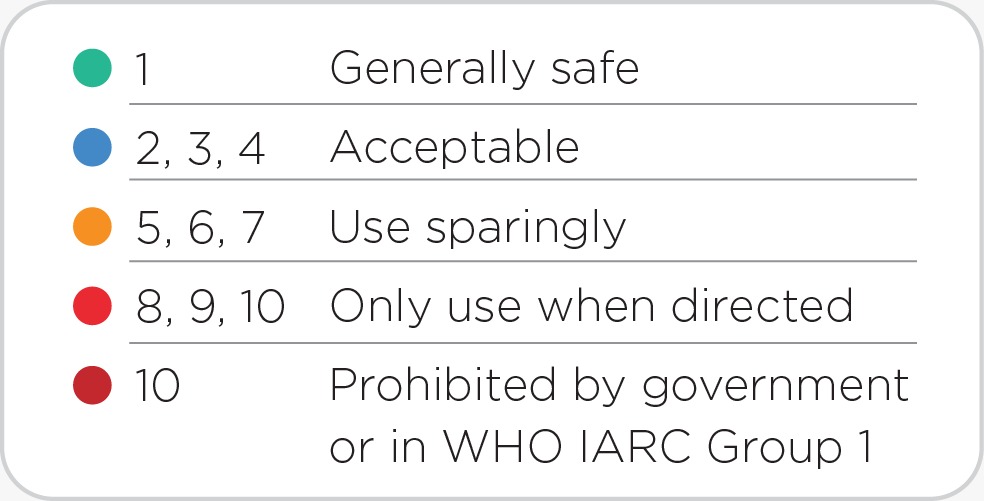E400; Alginic Acid(in 887 products)
Potential Risk Index®:
About:
Functions:
1. Binder / Stabilizer - Retains the physical characteristics of food/cosmetics and ensure the mixture remains in an even state.
2. Emulsifier - Allows water and oils to remain mixed together to form an emulsion.
3. Gelling Agent / Thickener - Increases the viscosity by thickening the liquid to give it more texture
4. Suspending Agent - Promotes particle suspension or dispersion while reducing sedimentation
Alginic acid, also called algin or alginate, is an soluble colloidal acid in the form of a carboxylated polysaccharide that is abundant in the cell walls of brown algae (especially large kelp and wracks). It absorbs water quickly, which makes it useful as an additive in dehydrated products such as slimming aids, and in the manufacture of paper and textiles. It is also used for waterproofing and fireproofing fabrics, in the food industry as a thickening agent (E number 400) for drinks, ice cream and cosmetics, and as a gelling agent for jellies. [1]
It is approved to use as food additive in EU and generally recognized safe food substance in US.
Scientific References:
Regulatory References:
1. US FDA Food Additives Status List [2018]
- Calcium alginate, Potassium alginate, Sodium alginate, Alginic acid
2. EU Approved Food Additive [2018]
- E404
3. Cosmetic Ingredient Review
- Alginic Acid
4. Japan’s List of Designated Food Additives under Article 10 of the Food Sanitation Act
- Calcium Alginate, Potassium Alginate, Sodium Alginate
5. US FDA Generally Recognized As Safe (GRAS) Food Substances (21 CFR 184) [2017]
- § 184.1011 - Alginic acid, § 184.1187 - Calcium alginate, § 184.1610 - Potassium alginate, § 184.1724 - Sodium alginate
Potential Health Concerns For:
1. Kidney Diseases (PubMed ID:5464695)
Potential Health Benefits For:
1. Wounds and Injuries (PubMed ID:18440737)
User Comments:
Submit








